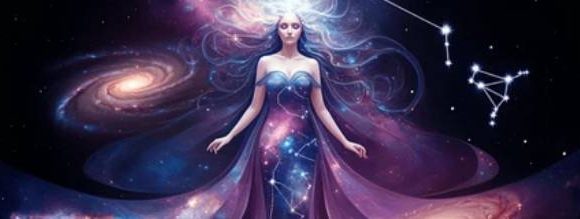From ancient mystics to modern physicists, humanity has long grappled with one of life’s most profound questions: What happens after we die? While traditional religions offer visions of heaven, rebirth, or spiritual continuation, modern science often leaves little room for such possibilities. Yet, emerging theories in quantum physics – particularly the idea of a multiverse – are opening new and unexpected doors to spiritual speculation.
Could the multiverse, with its infinite versions of reality, provide a framework for reincarnation, soul migration, or even eternal consciousness? Might physics, far from disproving spiritual ideas, be sketching the scaffolding for a new metaphysical vision – one where death is not an end, but a transition between dimensions of existence?
The Multiverse: A Quick Overview
In recent decades, theoretical physics has proposed that our universe might be just one of many – a single bubble in a vast sea of realities. These parallel universes could range from nearly identical to radically different, with varying physical laws, histories, and outcomes. This idea, known as the multiverse, arises from several branches of physics, including:
- Quantum mechanics, particularly the “many-worlds interpretation” (where every possible outcome actually occurs in some alternate reality),
- Cosmic inflation, which suggests endless universes bud off in an ever-expanding space,
- And string theory, which allows for multiple dimensions and hidden realms beyond our perception.
While the multiverse remains speculative, it’s a serious concept in physics – and one with astonishing spiritual implications.
Reincarnation, Reimagined
In Hinduism, Buddhism, and other spiritual traditions, reincarnation is the belief that the soul is reborn into new lives, evolving over time through various experiences. Traditionally, this is framed as a metaphysical process, governed by karma or cosmic law.
But in a multiverse, reincarnation might not require a supernatural soul-jump – it could occur naturally across parallel timelines. If infinite versions of you exist in alternate realities, then “you” may already be living countless lives – different identities, worlds, and histories, simultaneously or successively.
Each death, in this view, is not an ending but a shift in perspective – from one conscious stream to another. Just as we wake from one dream into another, death might awaken us into a new facet of the multiverse, with memories veiled but essence intact.
This isn’t traditional reincarnation, but a quantum echo of it – where the soul is not a separate object but a persistent pattern of consciousness, unfolding endlessly across dimensions.
Eternal Return and the Quantum Soul
In quantum physics, the observer plays a strange, central role. Experiments suggest that reality is not fully determined until it is observed – leading some to wonder whether consciousness itself is fundamental to the universe.
If this is the case, then death may not be the disappearance of the self, but its reconfiguration. Perhaps the consciousness that experiences “you” simply relocates – attaching itself to a new path in the multiverse where life continues, just slightly differently.
This overlaps intriguingly with the concept of the “quantum immortality” hypothesis. Some speculative interpretations suggest that, from a first-person perspective, consciousness never actually experiences death – instead, it always finds itself in the branch of the multiverse where it survives. In other words, you never experience your own end – just transitions into other realities where life somehow goes on.
Though controversial, this idea raises an eerie possibility: that the afterlife isn’t a place, but a process of unbroken awareness, hopping through the infinite permutations of the cosmos.
Soul Migration in a Quantum Cosmos
In many Indigenous and mystical traditions, the soul is not bound to a single life or body. It can migrate, evolve, or even return to the stars. In a multiverse, such migration might have a scientific analogue—not in physical travel, but in the persistence of consciousness across many worlds.
Perhaps the “soul” is not a ghostly entity, but a continuum of experience – a wave function of identity spreading across dimensions. Just as light is both a wave and a particle, the self might be both local and non-local – anchored in one life, but rippling through many.
This view doesn’t diminish spirituality; it expands it. Instead of one soul bound to one destiny, we might imagine an interdimensional identity, shaped by every decision, dream, and death across the vast sea of possible lives.
A New Kind of Afterlife
The multiverse doesn’t prove any afterlife, nor does it neatly confirm any religious doctrine. But it opens the door to new metaphysical possibilities – models of death and continuity that resonate with ancient intuitions, now refracted through the lens of modern physics.
In this new view, the afterlife isn’t a place you go – it’s a spectrum you enter. Each life becomes a note in an infinite song, played across the strings of reality. And death is not silence, but a pause between verses.
Living with Multiversal Meaning
Whether or not these ideas are true, their emotional and philosophical impact is profound. If the multiverse holds endless lives, then each moment of this one is irreplaceable. This version of you, in this world, will never happen again. That gives weight and sacredness to every decision, every love, every loss.
At the same time, the multiverse offers comfort. If this life ends, others may continue. If this path closes, others may unfold. We may be finite in body, but infinite in potential.
And perhaps the deepest truth is this: in contemplating the multiverse, we are not escaping death – we are reimagining life.








